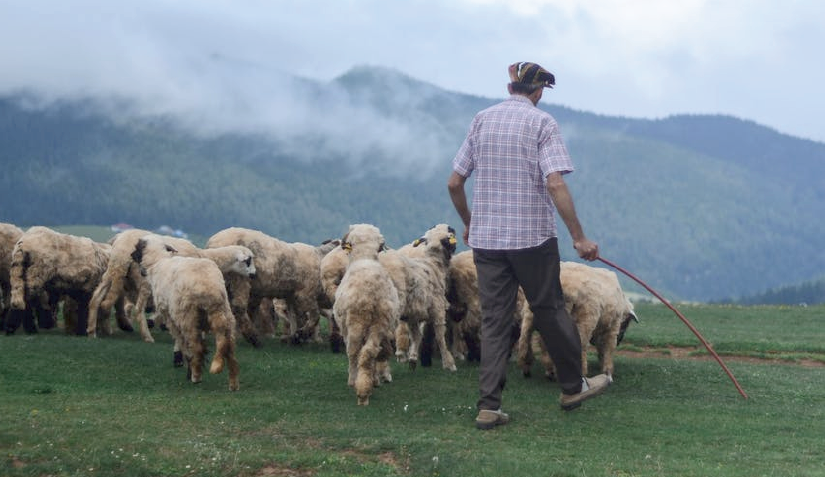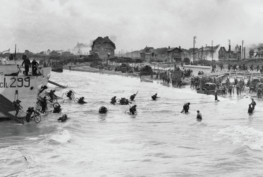Psalm 27:14 NKJV
Chaplain Gene Manuel MA, CPE
After graduating from high school in 1959, Iimmediately joined the U.S. Army. My basic training was at Fort Hood, Texas, and advanced training at Fort Sill, Oklahoma. I was stationed at Fort Bragg, NC for a few months and my final two years were at Dachau Germany. I was honorably discharge on August 10, 1962.
I attended The University of Kentucky on the G.I. Bill and obtained a master’s degree in communications.
My career in the hospital setting began in 1966 at the University of Kentucky Medical Center as a media specialist, University of Louisville Medical Center as chief of biomedical communications, and then took a position at Perry Point Veteran Medical Center as chief of medical media where I retired in September 1999.
My combined military service and VA service permitted me to retire at the age of 57. My wife and I love to travel and have been blessed to visit over 50 countries. After thirteen years of retirement, I completely changed my profession and began volunteering as a chaplain at our local hospital. I volunteered for three years and then joined the staff as hospital chaplain. As hospital chaplain, I was required to have additional spiritual training whereby I obtain a clinical pastoral education “CPE’ certificate.
Serving as a chaplain I am occasionally asked to preside at funeral services. I believe the Twenty-third Psalm is one of the most appropriate scriptures to read at a funeral. For centuries it has been one of the most treasured passages in the Holy Scripture. It is among the most familiar, so much so that even people who are not religious or very knowledgeable about Scripture recognize these words.
They are among the most comforting, often being quoted in times of trouble or distress. There are many images in this psalm which hold a particular meaning.
One image comes from the verse, “Yea, though I walk through the valley of the shadow of death, I will fear no evil; for thou art with me, thy rod and thy staff they comfort me.”
God is frequently described in the Bible as being a shepherd who cares for and tends to a flock of sheep. Many of us can remember when we were a child in Sunday school seeing the picture of the shepherd carrying the little lamb or the one with the good shepherd watching over his flock.
The shepherd uses his rod to ward off evil and to direct the sheep as they walk. The staff with its large crook at the end serves to support the sheep’s body when it crosses a dangerous path. The Lord protects, guides, and supports us. He does not send us through the dark valley with a cheery promise to meet us again on the other side. He goes with us each step of the way. The Good Shepherd reliably guides us through the valley of tears. He quiets our fears, comforts our hearts, and reassures us that we will make it through, though at times, we may not be so sure.
Recently, a friend shared a story with me about cruising down a river in Europe. He said as they passed a large flock of sheep grazing on the shore near the river, he was amazed that this large flock of sheep had no shepherd watching over them. Then he happened to notice on a distant hill side there was the shepherd perched on a rock not with a rod and staff but with an AK47 with a telescopic scope on the rifle. The shepherd was there to watch over his flock. I am certain that at one time or another we all have felt as though we were walking through such a “valley of the shadow of death.” but, God is always at our side watching over us.
Another image that comes from the verse is, “Thou preparest a table before me in the presence of mine enemies.” I find this verse especially appropriate at military funerals.
Some time ago I heard a story about a veteran of World War I, which is often referred to as the trench warfare. This was a fascinating story about a battle that had taken place in Europe. The veteran was an American, but he had enlisted with the British army and was fighting in the war for quite some time before most Americans enter the war.
They had been fighting on a stretch of land for many days. Both armies seemed to be at a stalemate. It so happened that the battle continued into Christmas Day. The fighting stopped, and all was quiet. Later in the morning, the German officers moved toward the British lines under a flag of truce and conferred with the British officers. After extended conversation, the two armies agreed to a truce to stop fighting for the day. They agreed to share their food for a Christmas meal.
The soldiers from each side joined together, ate together, and sang a few songs that had different words, but common tunes.
History tells us that these two armies hated one another. Americans especially hated Germans with a deeply racist attitude. But there they were, eating together in the presence of an enemy.
The veteran said after sharing their food, it was hard to go back to fighting the next day. They had shared food. They had sung songs of Christ’s birth. He said these soldiers were just like us. They had mothers and fathers just like we did. Some had wives and children, brother and sisters just like us.
He said he had glimpsed a time in the future when all of them would be together in heaven, and all their earthly conflicts would disappear. To all believers, what a glorious day that will be.
Wait on the Lord; be of good courage, and He shall strengthen your heart, I say: wait on the Lord!
Read more articles from VOM Magazine here: https://www.veteransoutreachministries.org/vom-magazine/




